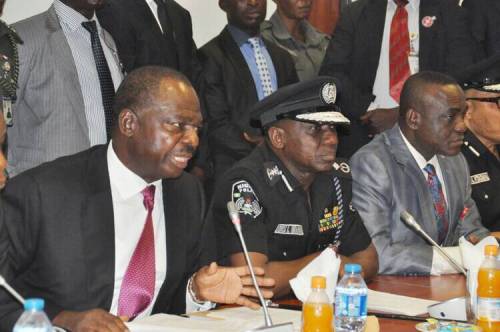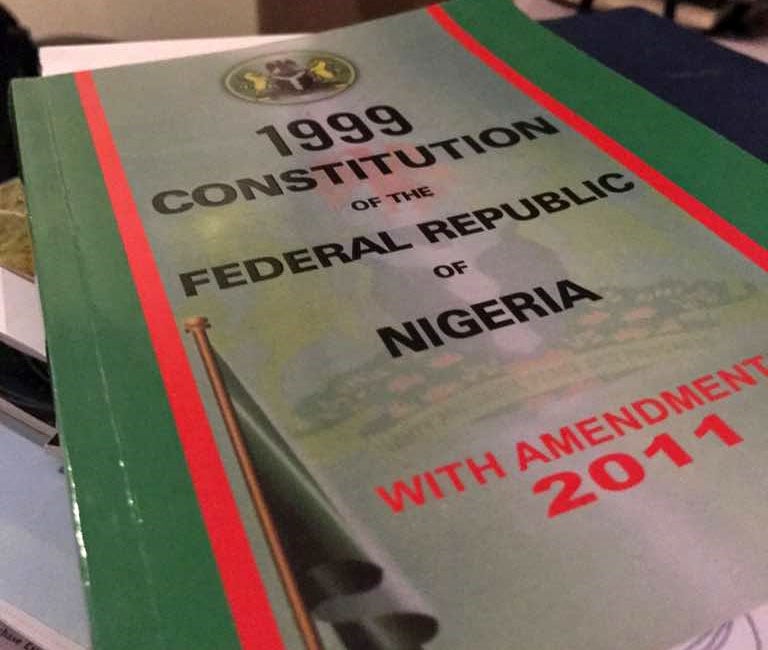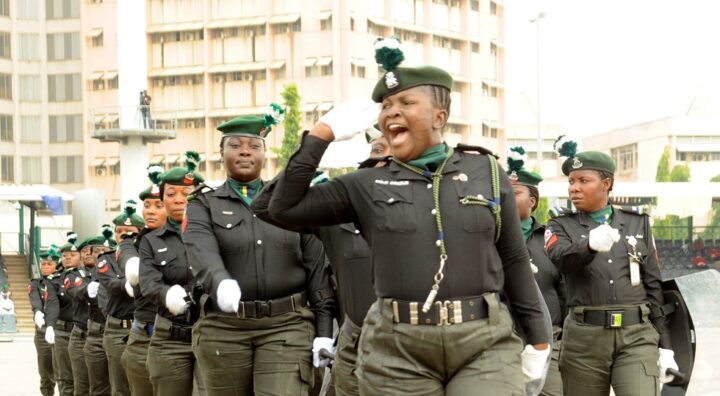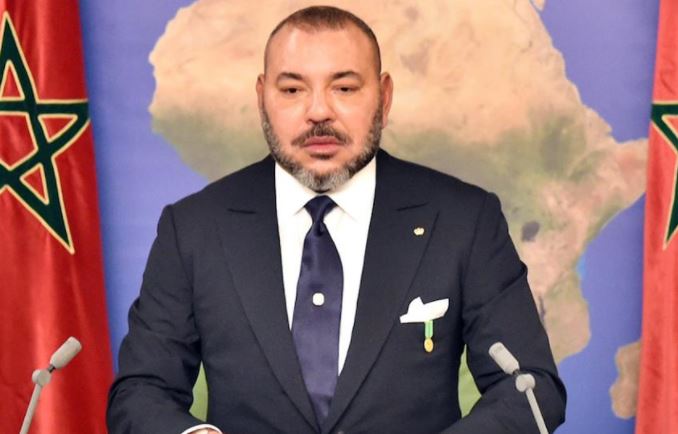PIC.6. POLICE WOMEN ON PARADE DURING THE 2016 POLICE WEEK GRAND
FINALE PARADE IN ABUJA ON FRIDAY (1/4/16).
2666/1/4/2016/HF/ICE/CH/NAN
Ibrahim Idris, inspector-general of police (IGP), has been in the news lately. And hardly for good reasons.
Claims and counter-claims have been flying around since Isah Misau, senator representing Bauchi central, accused him of being romantically involved with two policewomen whom he allegedly gave special promotion.
“The IG is openly having two relationships with policewomen which he gave special promotion. One of them is Amina and one of them is DSP Asta while the IG on 15th of last month got married to that woman DSP. Under Police Act and Regulation you cannot marry a serving woman police unless that woman retires,” Misau had said on the floor of the senate on October 4.
After refusing to answer questions asked him when he appeared before the senate panel set up to look into Misau’s claims, Idris finally gave his defence through an address filed at the court by Alex Izinyon, his counsel.
Advertisement

In the address obtained by PUNCH, Idris said Misau’s allegation showed lack of understanding of the provisions of the Police Act and Regulation”.
While arguing that the Islamic law allows him to marry four wives, the IGP also said his alleged affair with one corporal Amina is “false” and thereafter, challenged the senator to give the “full particulars of the female police (officer), where she is serving and her duty post”.
While the dust raised by his defence is yet to settle, the IGP raised an alarm that he is being misquoted in some sections of the media as saying he is “free to have a romantic affair with any policewoman.” Idris described such reports as “mischievous and unfounded”.
Advertisement
What are the issues? What are the facts?

CLAIM: NO LAW PREVENTS THE IGP FROM MARRYING A FEMALE OFFICER
Idris said Misau’s allegations against him show the senator’s lack of understanding of the police act and regulation.
A look at the Nigeria Police Act shows that while the act prohibits female police officers from getting married (to either a police or non-police officer) without first getting the approval of the state commissioner of police where she is serving, it did not ban Idris from having any affair with a female police officer.
Regulation 124 of the act provides thus: “Women police to apply for permission to marry [L.N. 93 of 1968.] A woman police officer who is desirous of marrying must first apply in writing to the commissioner of police for the State Police command in which she is serving, requesting permission to marry and giving the name, address, and occupation of the person she intends to marry. Permission will be granted for the marriage if the intended husband is of good character and the woman police officer has served in the Force for a period of not less than three years.”
Advertisement
It is, however, important to note at this point that the provision has since been nullified by a competent court of jurisdiction.

Following a suit filed by the Women Empowerment and Legal Aid Initiative (WELA) challenging the constitutional validity of above section 124, a federal high court sitting in Lagos had in 2012 declared that that regulation 124 was “illegal, null and void”, as it is inconsistent with section 42 of the constitution.
THAT SAID, WHAT DO OTHER NIGERIAN LAWS SAY?
1. THE NIGERIA POLICE CODE OF CONDUCT
While the Nigeria police code of conduct did not stipulate any marriage requirements or restrictions for serving police officers, its section 4 talks about rules guiding police officers both in the line of duty and in their private lives.
Advertisement
Sub-section 2 of the section states thus: “Police officers will behave in a manner that does not bring discredit to the Force or themselves. A police officer’s character and conduct while off duty must always be exemplary, thus maintaining a position of respect in the community in which he or she lives and serves. The officer’s personal behavior must be beyond reproach.
Misau had said “there are serving police officers who are now demoralised because of the activities of the office of the IGP”, arguing that the IGP’s alleged acts of misconduct ridicules the police force.
Advertisement

But this section of the Nigeria Police Code of Conduct did not state such acts that bring “discredit to the force or themselves (police officers). Therefore, Misau’s argument may be difficult to verify.
2. THE 1999 CONSTITUTION
Advertisement
The Nigerian constitution does not have any special provisions regarding marriage requirements or restrictions for serving police officers.
It also does not have such provisions for members of government security agencies and bodies which the IGP is identified to be one of them. Such bodies include the National Security Council and the Nigeria Police Council.
Advertisement
CONCLUSION: Misau’s claim that the IGP is having an affair with serving female police officers which he (IGP) handed “special promotions” is quite a weighty one. However, his claim that the said marital affair is contrary to the provisions of the Nigeria Police Act is false. On the other hand, it is difficult to prove whether such alleged act brings discredit to the police (against the provisions of the Police Code of Conduct) since the senator has not proven his allegations yet.
Add a comment







